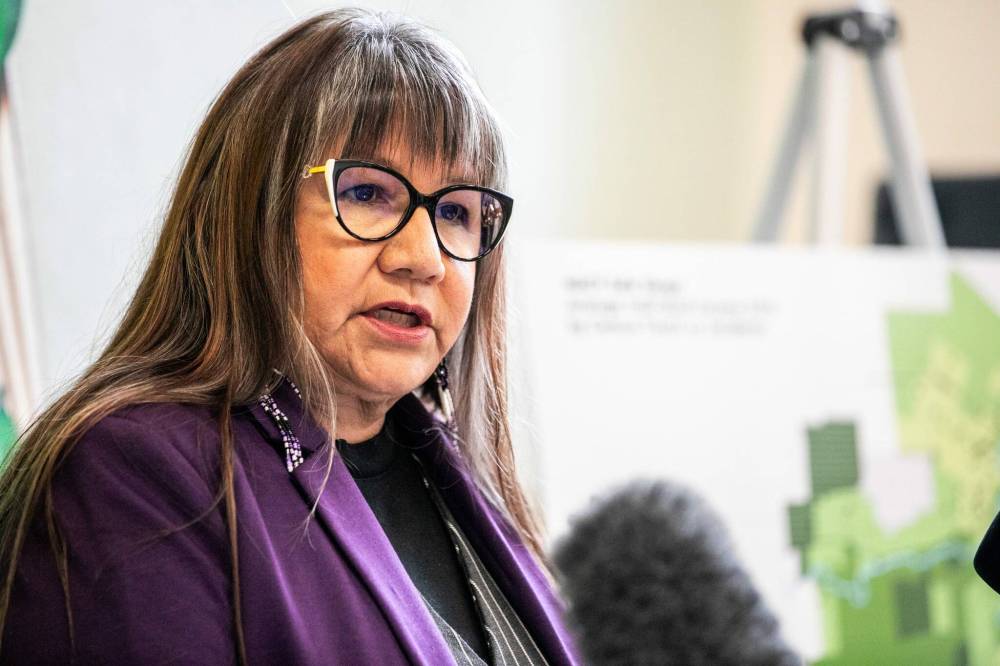
It has long been understood that when people struggling with addictions cannot get timely access to treatment, their chances of recovery fall dramatically.
When individuals with drug or alcohol addictions are ready to seek help but either cannot find it, are not sure where to turn, or are told they have to wait weeks or months for treatment, it’s less likely they will get the help they need.
So when a new report reveals that Manitoba youth struggling with addictions and mental health issues often don’t know where to get treatment, or cannot access it in a timely manner, it should be a wake-up call for the provincial government.
MIKAELA MACKENZIE / FREE PRESS Sherry Gott, the Manitoba Advocate for Children and Youth.
The Manitoba Advocate for Children and Youth (MACY) released a report last week that showed a majority of young people interviewed were not aware of addictions treatment available to them. Many of those who did know where to get help complained that long wait lists discouraged them from seeking treatment.
Poor access to treatment is even worse in rural and northern communities, the report found.
“Our findings didn’t surprise us, because we know that we’ve had systemic issues with regards to youth addictions and mental health for a long time,” said provincial advocate Sherry Gott.
MACY has for months been calling on the provincial government for a youth addictions strategy. The agency’s own data show the percentage of its cases where addictions are involved jumped from three per cent in 2018-19 to 22 per cent in 2022-23. It’s a dramatic increase that should be sounding alarm bells within the provincial government.
Gott said the province is working on an adult addictions strategy, but not one focused specifically on youth. Housing, Addictions and Homelessness Minister Bernadette Smith said a youth-focused strategy is coming but there is no timeline in place.
There should be. This should be a high priority for the province, given everything we know about the root causes of crime and other social and economic challenges in communities across Manitoba.
Addiction is one of the underlying factors in the growth of property and violent crimes. Politicians and others emphasize repeatedly how important it is to tackle the root causes of crime, including addictions, mental health and poverty. Yet it appears the province is not adequately funding addictions treatment for youth, including ensuring those who need those supports are aware of their existence.
The province should not only expand resources for youth addictions treatment to help reduce long wait times, it must do a better job of communicating to youth and their parents (or other caregivers) where those resources are and how to access them.
It is crucial that those services are available in a timely manner when someone struggling with addictions decides to seek treatment. There is often a small window of time to respond to that willingness to get help. Failure to do so in a timely way can be an impediment to treatment.
The province should work closely with service-providing agencies to expand addictions treatment for youth and develop a robust communications strategy to ensure people know where to access those services. That can be done through public awareness campaigns, including in schools, health-care facilities, youth hostels and through front-line service organizations.
It’s not good enough for the province to say a youth addictions strategy is on its way but offer no timeline as to when. This should be a much higher priority for the provincial government.


